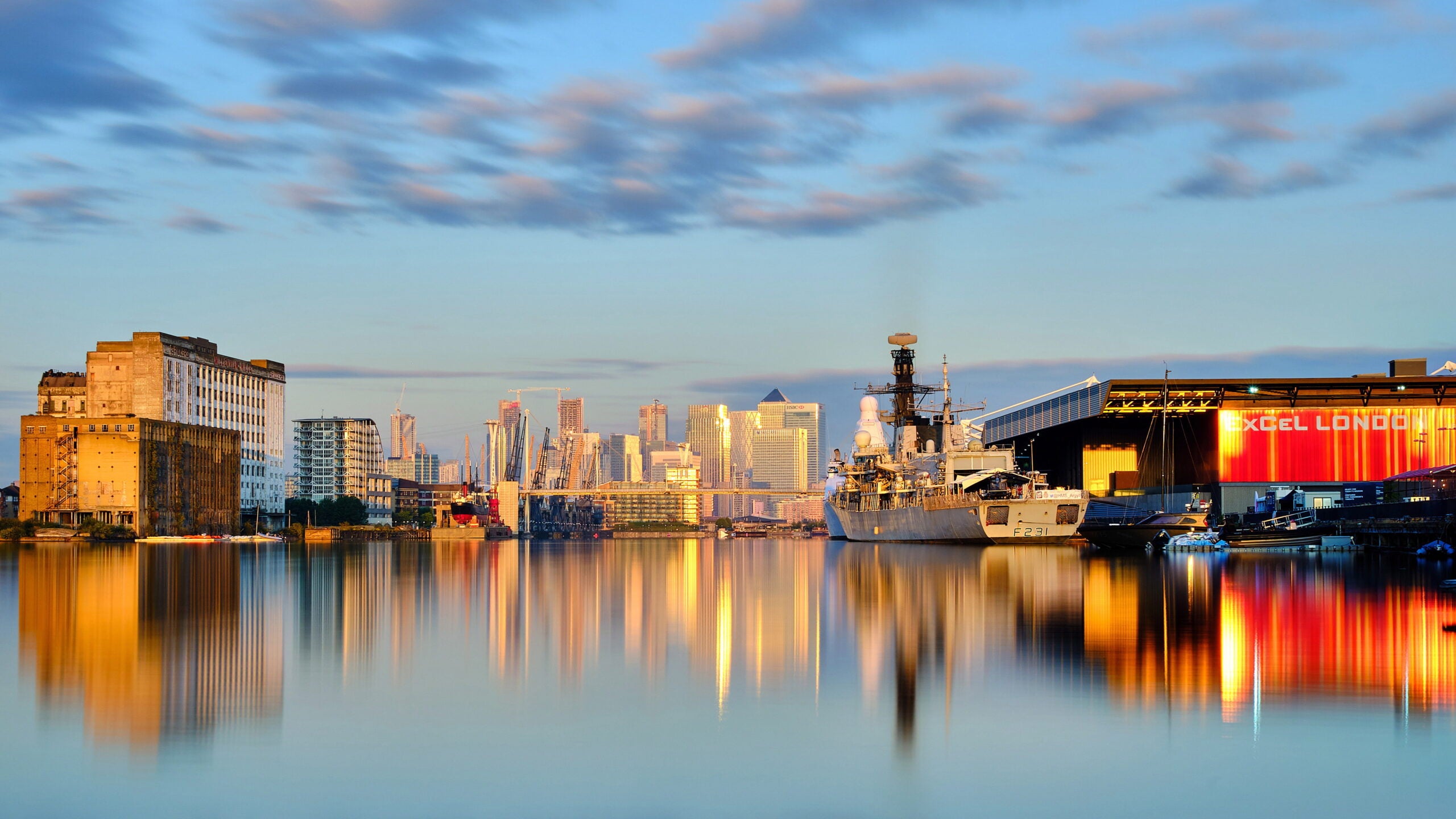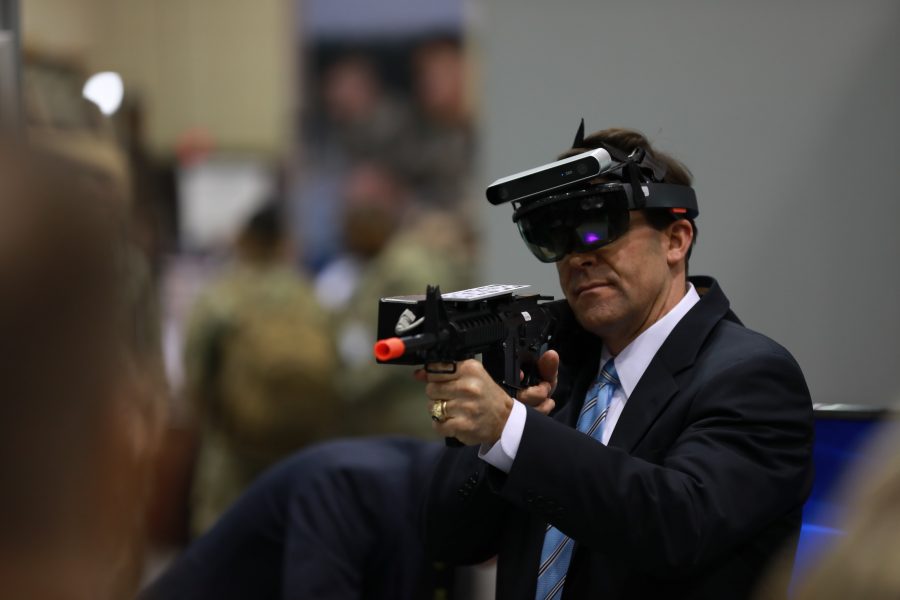
International events and exhibitions are the staple of just about every industry, giving companies the chance to show off their latest products and services, and network with existing and potential buyers. That’s no different for the defence sector, where large events such as DSEI in London and Eurosatory in Paris give companies an opportunity to launch new products, announce deals, meet important military delegates, and chat with journalists.
Eurosatory is one of the largest defence exhibitions in the world and was due to take place this month, but was cancelled and will now not take place until 2022. The event was expected to welcome around 100,000 people and 1,800 exhibitors, according to organisers COGES, a subsidiary of the French Land and Airland Defence and Security Association. London’s ExCel exhibition centre, where several defence events including DSEI are held, has been converted into a dedicated NHS hospital to treat Covid-19 patients, and there is no clear indication when it will be converted back.
“Trade shows are vital to the defence sector,” says Georgia Pickering, managing director of CMS Strategic, a London-based defence communications agency. “They serve as milestones in the calendar where companies can demonstrate their development, raise their profile and seek out new contracts and networking opportunities as well as re-strengthening the connections they already have. From a PR perspective trade shows are a vital channel for us in supporting our clients.”
Events are essential to building relationships
“Trade shows are traditionally fundamental to maintaining and developing relationships with customers and also sourcing new clients,” says Damien Delannoy, sales director at Texelis, a French defence company specialising in mobility solutions. The company has recently reopened its production facility in Limoges, France, to support key programmes including critical spare parts for operational French Army vehicles and the future Serval 4×4.
Delannoy says he has seen some programmes delayed due to Covid-19, while some organisations are speeding up their purchasing processes to ensure they will be first in line to be served when activity picks up again.
“We are still receiving enquiries, although converting new enquiries to sales is now reliant on technology rather than face-to-face meetings,” he says. “We stay in touch with our customers via Skype, mail, phone calls, WhatsApp. We are finding this process works because all across our industry everyone is on the same page, but we look forward to face-to-face meetings being possible again.”
How well do you really know your competitors?
Access the most comprehensive Company Profiles on the market, powered by GlobalData. Save hours of research. Gain competitive edge.

Thank you!
Your download email will arrive shortly
Not ready to buy yet? Download a free sample
We are confident about the unique quality of our Company Profiles. However, we want you to make the most beneficial decision for your business, so we offer a free sample that you can download by submitting the below form
By GlobalDataThat sentiment is echoed by Peter Simson, director of Tyron Runflat, a specialist in military-grade runflat solutions. “The defence industry in general is far more reactive to face-to-face meetings than other industries I have been involved with in the past, so for Tyron, major shows such as Eurosatory, DSEI and selected regional shows are key to the promotion of the company and its products. Therefore the cancellation of shows inevitably has quite an impact,” he says.
“Whilst Covid-19 has had, and continues to have, a significant impact on all of us, we are very fortunate to have a reasonable pipeline of business, and new and ongoing projects that have no doubt made life a little easier for us than many SMEs.”
Events and exhibitions are especially important for SMEs to build networks and raise awareness of their products, particularly to government and industry officials.
“Trade shows have been essential for young, innovative companies to present their emerging technologies directly to potential governmental and industrial partners,” says Lorenz Lehmhaus, a consultant who works with defence companies on accessing the global startup and SME ecosystem. “In combination with new trade show formats such as hackathons and pitch events, SMEs were able to raise attention for their business model, while helping organisers to attract more visitors.”
 Events such as DSEI allow companies to demonstrate their products, something which digital alternatives still struggle to replicate. (Image: Clarion Events)
Events such as DSEI allow companies to demonstrate their products, something which digital alternatives still struggle to replicate. (Image: Clarion Events)
Finding alternatives to large trade fairs
Lehmhaus notes that the defence industry relies heavily on personal relationships between suppliers and customers, and while large corporations foster these over decades, SMEs don’t always have access to such networks.
“SMEs hoping to gain a more direct access to decision-makers on trade shows now have to find other ways to get attention from the industry and militaries alike,” he says. “As this again takes a lot of time, it might happen that these companies eventually decide to turn away from the defence sector and hence to business in a non–military sector. This must not happen.”
As an alternative to defence exhibitions, SMEs are likely to increase their digital presence on professional social media platforms such as LinkedIn.
“Their flexible structures and comparably smaller portfolio allows them to pivot from one channel to the next, without having to invest large resources,” says Lehmhaus. “Trade shows will continue to play a significant role, but new digital formats that can been screened to a wider audience more regularly online will gain more and more influence, thus potentially decreasing the necessity to attend costly trade shows.”
Companies are also upping the amount of digital engagement and continuing to inform external stakeholders about recent developments, particularly if they are involved with the effort to fight Covid-19.
“We are focused on maintaining a drumbeat of activity to engage and communicate with the defence audience throughout these challenging times, using all the virtual tools that are available,” says Pickering. “Video briefings with journalists, virtual round table discussions and webinars are all an important part of the short-term plan.”
 SMEs rely on events to showcase their products to a large audience of potential buyers. (Image: US DoD)
SMEs rely on events to showcase their products to a large audience of potential buyers. (Image: US DoD)
One event that will now go virtual is the Special Operations Forces Industry Conference (SOFIC), normally held every year in Tampa, Florida. Now known as vSOFIC, the event will still “enable critical conversations and collaboration as well as maintain existing and establish new networks and connections between the SOF community and their traditional and non-traditional industry partners”, promise the organisers.
A virtual attendee of vSOFIC will be Debbie Kemp, defence sales manager at LifeSaver, a company that specialises in water purification products. The company would normally set up a practical demonstration of its products, turning dirty water into clean drinking water.
“Our first experience of a virtual trade show will be SOFIC, it will be interesting to see if we are still able to capture attention of delegates without our practical demonstration,” says Kemp. “Due to the highly visual nature of our product demonstration at trade shows, we will still look to attend trade shows in the future as this has been a very effective way of capturing audiences that would normally not have considered water filtration as something they would look at when visiting.”
 Defence companies are keen to see the return of exhibitions such as Eurosatory and DSEI. (Image: Clarion Events)
Defence companies are keen to see the return of exhibitions such as Eurosatory and DSEI. (Image: Clarion Events)
Will we meet again?
Most of the defence industry insiders we spoke to for this article agree that defence exhibitions will still have an important role to play when the Covid-19 pandemic is over, although they are likely to be different than the past.
“Trade shows will remain an important part of our strategy,” says Delannoy. “Not just because they are a proven and efficient way to do business, but also because it is always a pleasure to gather with our colleagues, clients and other business contacts. However, it is rather clear that trade shows will probably have to be adapted, new rules will probably apply, and no one can really tell what they will look like in the future.”
Pickering adds: “If anything, the importance of trade shows is being highlighted further by their absence. Day-to-day business can adapt to a virtual environment but nothing can replace the opportunities provided under one roof at events like DSEI. Tradeshows remain the most efficient means of engaging with a broad spectrum of the defence and security industry.”



